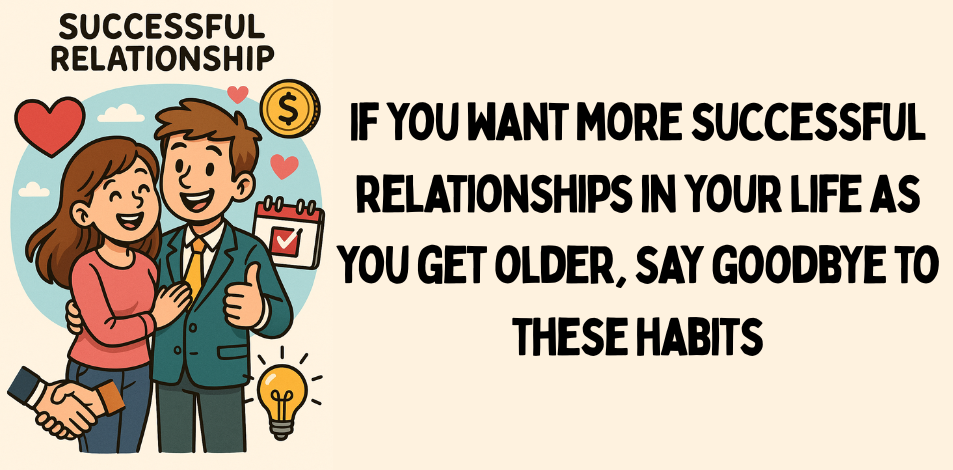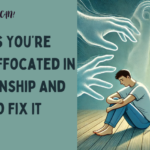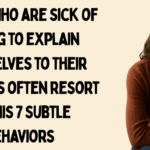
As we age, the quality of our relationships plays a vital role in our happiness and self-fulfillment.
But as we age, some habits that once seemed harmless can begin to undermine our relationships with others.
Building successful relationships requires self-awareness and the courage to let go of behaviors that hold us back.
If you want to build deeper, more meaningful connections in your life, it’s time to break these habits that may be holding you back:
1) The Blame Game
As we age, we become more accountable for our actions—and that responsibility extends to our relationships as well.
A common habit we often carry is blaming others for what happens in our lives.
It’s easy to point the finger at someone else when things don’t go as planned.
But the problem is, the blame game doesn’t get you closer to a solution.
Instead, it creates division and fosters resentment.
If you want more successful relationships as you age, it’s time to break this habit.
Start taking responsibility for your actions and work on solutions instead of finding fault.
Remember, it’s about understanding, compromising, and moving forward together.
And trust me, your relationships will be better without the blame game.
2) The Habit of Not Listening
Let me share a personal story: I remember a conversation I had with an old friend a few years ago.
The topic was very serious, something that bothered her deeply.
But what was I doing? I was busy thinking about what to say next, waiting for her to finish so I could offer my advice.
Then I realized: I wasn’t really listening to her—I was just waiting for my turn to speak.
That’s when I realized the difference between listening and truly listening.
In successful relationships, active listening is crucial because it means giving your full attention, showing empathy, and understanding the other person’s point of view.
It took some practice, but consciously working on this habit transformed my relationships.
3) Holding on to a Grudge
Science tells us that forgiveness is not only good for our relationships, but also for our health.
Studies have shown that forgiving someone can lower your blood pressure, reduce stress, and improve your immune system.
If you’ve been holding on to a grudge as you get older, it may be time to let go.
This doesn’t mean forgetting what happened or absolving the person of responsibility; it means releasing the anger and resentment that weigh you down.
Holding on to a grudge is like drinking poison and waiting for the other person to die.
Letting go of grudges and forgiving them may not be easy, but it’s good for your relationships and your health, allowing you to move on and focus on building stronger bonds with the people in your life.
4) Being Overly Critical
We all have strengths and weaknesses, and it’s okay to help others improve themselves or correct their mistakes.
However, if you’re constantly finding fault and criticizing others, it can damage your relationships over time.
Over-criticism can make the other person feel unappreciated or inadequate.
It’s like telling them they’re not good enough, and that’s not a good feeling.
Instead, try to focus on the positives.
Appreciate their efforts and celebrate their successes, and when you need to offer feedback, do so constructively.
Remember, we all make mistakes—it’s about learning from them and improving together.
5) Neglecting Self-Care
There was a time when I was so focused on taking care of others that I forgot to take care of myself.
I was constantly feeling exhausted, trying to meet everyone’s needs and forgetting my own.
This habit negatively impacted not only my health but my relationships as well.
I was always tired, irritable, and barely had the energy to connect with my loved ones.
That’s when I realized the importance of self-care—you can’t just pour from an empty cup.
To strengthen your relationships, you must first take care of yourself.
Self-care is essential because it gives you the energy and mental clarity to be fully present in your relationships.
Start prioritizing your well-being, and you’ll see a positive impact on your relationships as well.
6) Avoid Difficult Conversations
Life isn’t always bright and glamorous, and neither are relationships.
It has its ups and downs, its moments of joy and its moments of struggle.
Avoiding difficult conversations may seem like a good idea in the short term.
You’re avoiding conflict and avoiding irritation; but in the long run, it can lead to misunderstandings and resentment.
It’s important to communicate openly about issues or concerns.
Yes, it may be uncomfortable in the moment, but it paves the way for better understanding and stronger relationships in the future.
If you’ve been avoiding difficult conversations, it’s time to say goodbye.
Open and honest communication is the foundation of successful relationships.
7) Expecting Perfection
No one is perfect—not you, not me, not anyone.
Expecting perfection in others or in your relationships is a sure way to set yourself up for disappointment.
The beauty of relationships lies in our imperfections, in our unique traits and subtle characteristics.
It’s about accepting each other as we are, with all our strengths and flaws.
Embrace our imperfections and discover their beauty.
You’ll find your relationships becoming more authentic, more fulfilling, and ultimately, more successful.
The Bottom Line: It’s a Journey
The path to successful relationships isn’t a straight line; it’s a winding journey, filled with growth, lessons, and self-discovery.
In the words of renowned psychologist Carl Jung, “The meeting of two personalities is like the contact of two chemicals: if there’s any reaction, both are transformed.”
This transformation requires letting go of habits that no longer serve us and embracing change.
As we age, our relationships mature and evolve with us—they reflect who we are and who we become.
If you’re striving for more successful relationships as you age, remember that it’s not just about letting go of these habits, but also embracing the journey of growth and transformation that relationships inherently bring.
This journey may be difficult at times, but it’s part of what makes our relationships so rich, rewarding, and deeply human.
Isn’t that what makes life truly beautiful?




